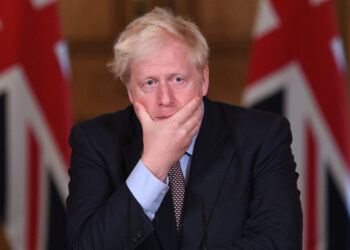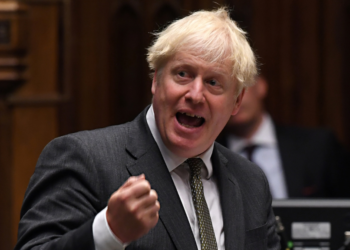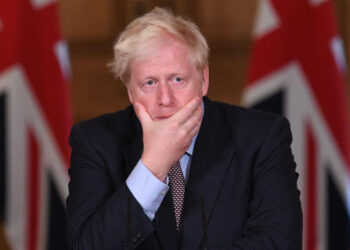A Scottish lawmaker who won a landmark legal case against the U.K. government’s suspension of parliament has warned Prime Minister Boris Johnson he faces legal action if he blocks a new vote on Scottish independence.
The Scottish National Party (SNP) wants a second referendum to be held now that Britain has left the European Union, as a majority north of the border with England wanted to stay in the bloc.
Johnson has refused to transfer powers from London to the devolved government in Edinburgh under the Scotland Act for a new vote to be held.
But SNP lawmaker Joanna Cherry suggested the Scottish Parliament should support a non-binding consultative referendum, then let judges decide if it had the power to do so under the legislation.
“Boris Johnson should be put on notice that we have options and we are not afraid to push forward,” Cherry wrote on Twitter on Sunday.
“The balance of legal opinion is that we might well win any court challenge & I don’t believe that losing would set us back any further than where we are just now.”
Cherry, the SNP’s interior affairs spokeswoman at the U.K. parliament, was among a group of lawyers who successfully challenged Johnson’s suspension of the U.K. parliament last year.
The suspension was widely interpreted as a bid by Johnson to limit the scope for MPs to have a say on his Brexit strategy.
Political Case
Some 55 percent of Scots voted to remain part of the United Kingdom in 2014, seemingly taking the issue off the table in what was described as a “once-in-a-generation” decision.
But nationalists argue Brexit represents a material change in Scotland’s constitutional arrangements with the U.K. government in London.
Some 62 percent of people north of the border voted to remain in the E.U. in 2016.
A recent Panelbase poll indicated 56 percent of Scots were in favor of the Scottish Parliament legislating to hold a referendum if the UK government continued to block demands for a vote.
Scotland’s First Minister and SNP leader Nicola Sturgeon has refused to sanction any “wildcat” unauthorized referendum.
But she has also said she would not rule out seeking legal clarification of the Scottish government’s power to hold a consultative referendum.
She restated that position at an event at the European Policy Center in Brussels on Monday.
“But if you ask me whether I think we should expend our energy on a legal process with an uncertain outcome or on building the political case for independence and an independence referendum, I choose the latter. That is my judgment,” she added.





















